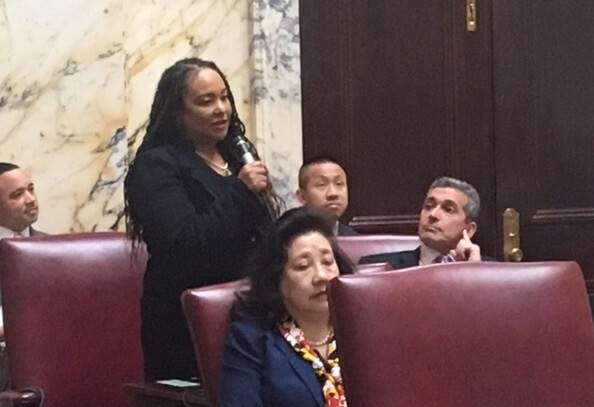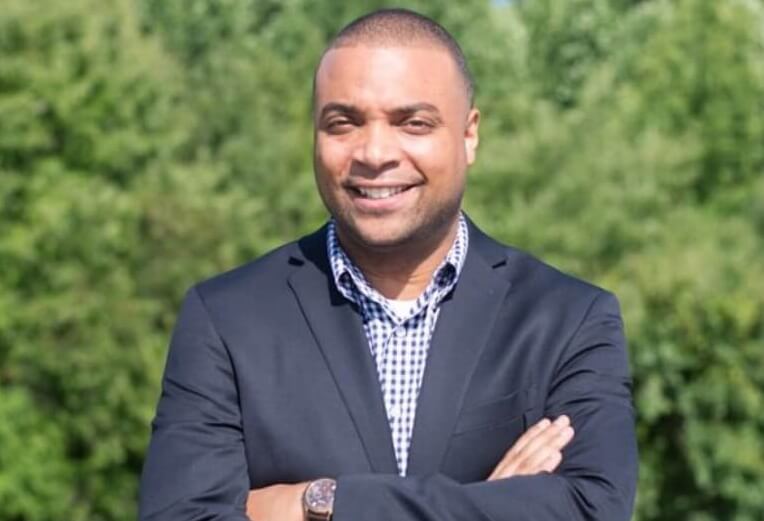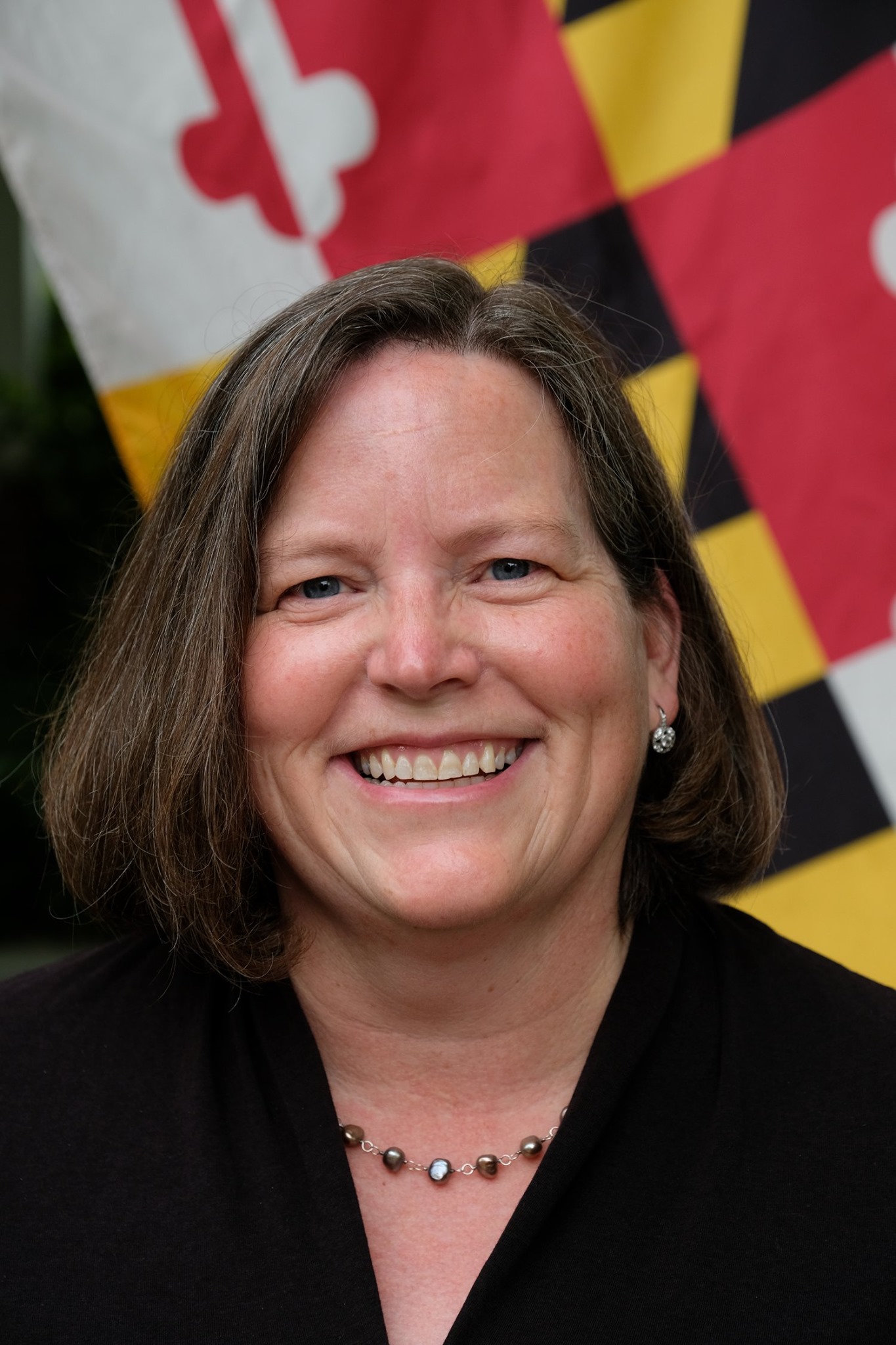With Jackson and Forbes, Appointees Make Up One-Fifth of Legislature

House Speaker Adrienne A. Jones (D-Baltimore County) is part of the club. So are the chairmen of the House Appropriations Committee and two state Senate committees.
What do these powerful lawmakers have in common? They were all initially appointed to their current legislative seats.
They are hardly alone.
When Baltimore County Democrats Carl Jackson and Catherine Forbes join the House of Delegates in the next several days, assuming Gov. Lawrence J. Hogan Jr. (R) follows tradition and goes along with the recent recommendations of the county’s Democratic Central Committee, it will bring the total number of appointees serving in the 188-member General Assembly to 36. That means that almost 20 percent of all lawmakers either hold their current seats – or originally arrived in the legislature – as the choice of a select few political insiders, rather than the voters.

Carl Jackson
In Maryland, legislative vacancies are filled by the governor, following recommendations from the county central committee of the political party the departing lawmaker belonged to. If the lawmaker’s district covers more than one county, then the party leaders in those counties have to recommend an appointee. Sometimes, they do not agree.
And in late 2012, there was controversy when then-Gov. Martin J. O’Malley (D) refused to appoint the Prince George’s County Democratic Central Committee’s nominee for a vacant seat, after he learned of the nominee’s criminal past. The case wound up in court, and in early 2013 O’Malley wound up appointing someone else.
Jackson, who will be replacing former Del. Eric Bromwell (D) in the 8th District, and Forbes, the designated successor to former Del. Stephen W. Lafferty (D) in District 42A, are just the latest examples of lawmakers being appointed to their seats; both Lafferty and Bromwell resigned to take high-level positions in the Baltimore County government.
But chances are, they will not be the last this legislative term. For any number of reasons – death or health, political promotions, real-life job changes, corruption, and more – seats in the House and Senate turn over just about every year.

Towson community activist Catherine Forbes is almost certainly headed to the House of Delegates.
Once Forbes and Jackson join the House, more than half of the state’s legislative districts – 25 of 47 – will have at least one lawmaker who benefited from an appointment to the job. In the 2nd District, centered in Washington County, three of the four legislators were initially appointed to their jobs. Same in Prince George’s County’s 22nd District.
Is giving county political committees, and ultimately, the governor, appointment powers the most democratic way to fill legislative vacancies? Is instantly bestowing the benefits of incumbency to appointees fair to other candidates interested in seeking the seat?
Del. David Moon (D-Montgomery) has sought for the past few General Assembly sessions to move legislation setting up a vote on a proposed Constitutional amendment to mandate special elections for most legislative vacancies. The bill has never progressed beyond a hearing; in the most recent legislative session, Sen. Clarence K. Lam (D-Howard) introduced a similar piece of legislation, which also went nowhere.
Under the bill, if a vacancy in the state Senate or House occurs at least 21 days before the candidacy filing deadline for the regular statewide primary and general election held in the second year of the term, the governor must immediately declare special primary and general elections to elect a successor.
The special primary and general elections must take place during the regular statewide primary and general elections, and the governor must appoint a qualified individual to fill the vacancy until a successor is elected. If a vacancy occurs after or fewer than 21 days before the specified candidacy filing deadline, the governor appoints an eligible individual to serve the remainder of the vacating senator’s or delegate’s unexpired term.
The proposed constitutional amendment would exempt a specified special election to fill a vacancy in the office of state senator or delegate from the general requirement that elections for state and county officers take place on a specified quadrennial schedule.
Common Cause Maryland, the government watchdog group, embraced the legislation, saying it would “give Marylanders more of a voice.”
“There is no reason that Marylanders shouldn’t have this vital input into their state representatives,” the watchdog said in a statement.
In a recent interview, Moon said he was not sure if he would introduce the bill again in the 2020 legislative session — though he said the two recent Baltimore County vacancies gave him pause.
Twenty-five states fill legislative vacancies through special elections, according to the National Conference of State Legislatures.
Here is a list of all the legislators who were appointed to their seats, not including the lawmakers-in-waiting, Jackson and Forbes:
District 2: Sen. Andrew Serafini (R-Washington) was appointed to replace Christopher Shank in 2015 when Shank resigned from the Senate to serve in the Hogan administration. Serafini had been serving in the House, where he was first appointed in 2008 to replace scandal-plagued Robert McKee.
Del. William J. Wivell (R-Washington) was appointed to replace Serafini when Serafini moved up to the Senate. And Del. Paul Corderman (R-Washington) was appointed to the House in late 2017 after former Del. Brett Wilson (R) was nominated to a judgeship.
District 4: Del. Barrie S. Ciliberti (R-Frederick) — who represented Montgomery County in the legislature from 1995 to 1999 and had made several comeback attempts — was appointed to replace Kelly M. Schulz (R) in the House when she joined the Hogan administration.
District 5: Sen. Justin Ready (R-Carroll) was serving in the House when he was appointed in 2015 to replace Joseph M. Getty, who joined the Hogan administration. Del. April Rose (R-Carroll) was appointed to the House to replace him.
District 9: Del. Warren E. Miller (R-Howard and Carroll) was appointed in 2003 when Robert L. Flanagan became state Transportation secretary. Flanagan was later elected to an adjoining subdistrict, but he lost his reelection bid in 2018.
District 10: Jones, now the House speaker, was appointed in 1997 following the death of Del. Joan N. Parker (D-Baltimore County).
District 11: Del. Dana M. Stein (D-Baltimore County) got a taste of legislative service in 2002 after being appointed to replace Michael Finifter, who became a judge. Stein lost a bid for a full term in 2002 but came back to win the seat four years later and has been there ever since.
District 14: Sen. Craig J. Zucker (D-Montgomery) was elevated from the House to the Senate following the resignation of Sen. Karen Montgomery (D) in 2016. Del. Pamela Queen (D) was appointed to replace him.
District 15: Sen. Brian J. Feldman (D-Montgomery) rose from the House to the Senate following the resignation of Senate Majority Leader Robert J. Garagiola (D) in 2013. Feldman was replaced in the House by Del. David Fraser-Hidalgo (D).
District 16: Sen. Susan Lee (D-Montgomery) first joined the legislature when she was appointed to the House in 2002, after then-Del. Nancy K. Kopp (D) became state treasurer. She served in the House until winning a vacant Senate seat in 2014.
District 18: Del. Alfred C. Carr Jr. (D-Montgomery) was appointed to the House in 2007 following the death of then-Del. Jane Lawton (D).
District 20: Del. William C. Smith Jr. (D-Montgomery) had spent two years in the House when he was elevated to the Senate following the election of Jamie Raskin to Congress. Del. Jheanelle Wilkins (D) was appointed to fill Smith’s House seat.
District 22: State Sen. Paul G. Pinsky (D-Prince George’s) had already been serving in the House and was gearing up to challenge incumbent state Sen. Thomas P. O’Reilly in the 1994 Democratic primary when O’Reilly abruptly resigned to join the state Workers Compensation Commission. Pinsky was appointed to fill the vacancy and then won the seat outright a few months later.
Del. Tawana P. Gaines (D-Prince George’s) was appointed to replace Richard Palumbo (D) in 2001, and Del. Alonzo T. Washington (D) was appointed to replace Justin Ross.
District 24: Del. Jazz Lewis (D-Prince George’s) was appointed to replace Del. Michael Vaughn (D), who resigned in scandal in 2017.
District 27: Del. Susan Proctor (D-Prince George’s) was appointed to the seat following the death of her husband, long-serving Del. James E. Proctor Jr. (D) in 2015.
District 29: Del. Gerald W. Clark (R-Calvert) was appointed to the House after former Del. Tony O’Donnell (R) was nominated to the Maryland Public Service Commission.
District 30: Del. Shaneka Henson (D-Anne Arundel) was appointed to the House this spring following the death of the late Speaker Michael E. Busch (D). She had been serving on the Annapolis City Council.
District 33: Sen. Edward Reilly (R-Anne Arundel) joined the Senate in 2009 after a stint on the Anne Arundel County Council, following the resignation of Janet Greenip (R). Del. Michael Malone (R) was appointed to the House after Catherine Vitale (R) became a judge in 2015.
District 36: Senate Minority Whip Stephen S. Hershey Jr. (R-Upper Shore) was elevated to the Senate as a first-term delegate following the resignation of E.J. Pipkin (R) in 2013. Del. Steven Arentz (R) was appointed to take Hershey’s House seat.
District 39: Senate Budget and Taxation Chairwoman Nancy J. King (D-Montgomery) was serving in the House when she was appointed to replace P.J. Hogan, who resigned, in the Senate in 2007. Del. Kirill Reznik (D) was then tapped to replace King in the House.
District 40: After a series of dominoes fell following the election of then-state Sen. Catherine E. Pugh (D) as mayor of Baltimore in 2016, Del. Nick J. Mosby (D) was appointed to a House seat in 2017.
District 41: Sen. Jill P. Carter (D-Baltimore City), a former delegate, was already running for the Senate seat last year when she was appointed to replace Nathaniel T. Oaks (D), who was headed to federal prison on corruption charges.
District 43: House Appropriations Chairwoman Maggie L. McIntosh (D-Baltimore City) was appointed in 1992 to replace former Del. Anne Perkins (D), who resigned to teach in China.
District 46: Del. Robbyn T. Lewis (D-Baltimore City) was appointed in 2017 to replace Peter Hammen, who resigned to take a high-ranking job in city government.




 Creative Commons Attribution
Creative Commons Attribution